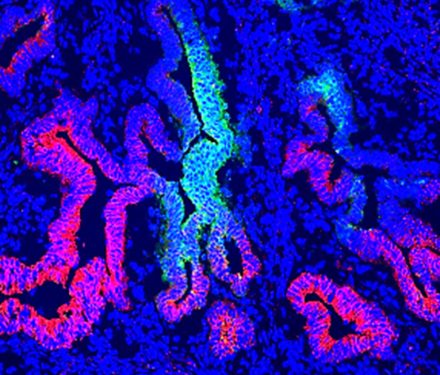Bianca’s story | endometriosis
Bianca had the worst case of endometriosis her doctors said they had seen. Yet, she had no pelvic pain and was only diagnosed after experiencing infertility. She now wants to raise awareness so that other women don’t suffer.

As a teenager, Bianca felt a “heavy pulling, like a brick in her uterus” during her menstrual cycle. When she started taking the oral contraceptive pill, her symptoms disappeared for 10 years.
It wasn’t until she began trying to fall pregnant in her mid-twenties that Bianca began to question why she and her husband were having trouble with fertility.
A fertility specialist suspected that Bianca might have endometriosis, which causes infertility in around one third of the women it affects. A diagnostic laparoscopy confirmed the presence of stage IV (severe) deep infiltrating endometriosis.
Endometriosis had completely changed the anatomy of Bianca’s pelvic organs – lesions and cysts had become stuck to her bowel, bladder and ovaries.
“I was told by my doctors that it was the worst case of endometriosis they had ever seen,” Bianca said.
Bianca was shocked – she had no pelvic pain and infertility was her only symptom since her teenage years. Bianca had surgery to remove the endometriosis lesions, but soon after she began experiencing paralysing pain in her neck and shoulder that strangely corresponded with her cycle.
While endometriosis usually affects the pelvic organs, in rare cases, it can be found in other parts of the body. Keyhole surgery confirmed Bianca had diaphragmatic endometriosis that had spread across her torso. This was aggravating a nerve, triggering the pain in her neck and shoulder.
A further operation was required to remove one of Bianca’s ovaries, which was no longer functioning due to the severity of the disease. Endometrial cells had also infiltrated her ureter, blocking the passage between the bladder and one kidney. She had to undergo a ureteric reconstruction to restore normal function to her kidney.
“People associate endometriosis with period pain or pelvic pain – but it’s so much more than stomach cramps. I nearly lost a kidney, and I was close to requiring a bowel resection due to endometriosis. This is not just about period pain. It’s just horrific,” Bianca said.
Since the operation, Bianca’s pain and life have improved. She believes women should have access to an early diagnostic test for endometriosis and a range of effective treatment options.
“Early diagnosis is just so critical,” Bianca said. “We need treatments other than surgery – every woman’s experience is different. There’s an urgent need to create progress for endometriosis through medical research.”
Contact us
Hudson Institute Communications
t: + 61 3 8572 2697
e: communications@hudson.org.au



